Programme launched to strengthen treatment for hereditary angioedema in Vietnam
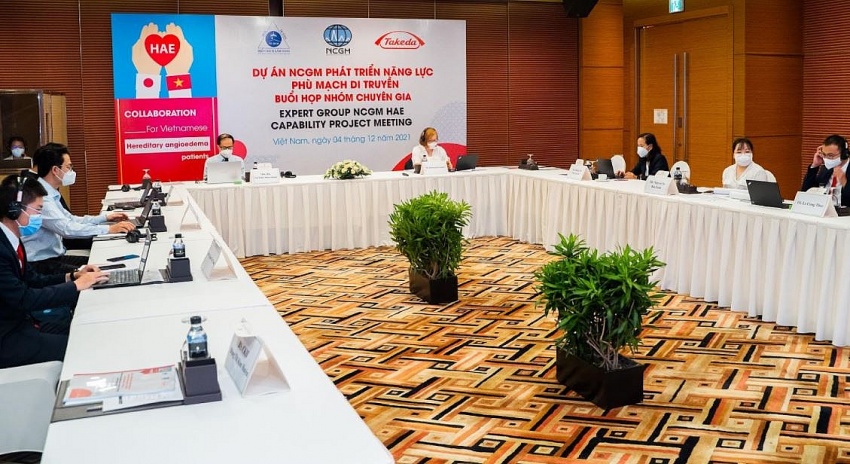 |
| The Expert Group NCGM HAE Capability Project meeting on establishing diagnostic methods, strengthening treatment and developing guidelines for hereditary angioedema in Vietnam |
The programme is part of the Projects of Global Extension of Medical Technologies run by the National Center for Global Health and Medicine and funded by Japan’s Ministry of Health, Labour, and Welfare. It is the first Project of Global Extension of Medical Technologies submitted and adopted by a pharmaceutical company entrusted as a training provider.
To kick off the project, the Expert Group NCGM HAE Capability Project Meeting was held in Ho Chi Minh City on the weekend, connecting virtually with experts in Hanoi and Japan. The meeting received the participation of Dr. Nguyen Trong Khoa, deputy head of Medical Service Authority; Dr. Tong Thi Song Huong, deputy general secretary of Vietnam Medical Association; associate professor Le Thi Tuyet Lan, president of Ho Chi Minh City’s Society of Asthma and Allergy and Clinical Immunology; Fiona Wardman, treasurer and director of HAEi chief regional patient advocate, regional patient advocate – Asia Pacific; and Takaya Shimizu, First Secretary, Embassy of Japan in Vietnam.
HAE is a rare genetic disorder that results in recurrent attacks of oedema – swelling – in various parts of the body, including the abdomen, face, feet, genitals, hands, and throat. HAE affects an estimated 1 in 50,000 people worldwide. In Japan, it is estimated that between 2,000 and 3,000 people are living with HAE, but only approximately 450 have been diagnosed due to low awareness of the disorder in the country.
In Vietnam, diagnosed HAE patients are estimated at only 50 (the number of patients at Bach Mai Hospital – the only specialist treatment centre for HAE in Vietnam). This is thought to be only around 2.5 per cent of the estimated 2,000 HAE sufferers. The vast majority of patients remain undiagnosed.
Takeda collaborates with HAE expert doctors in Japan to execute the programme. Doctors will hold lectures on topics such as examination and diagnosis methods for HAE for healthcare practitioners in major hospitals in Hanoi and Ho Chi Minh City and establish HAE treatment guidelines.
“We are honoured that our programme has been adopted as a Projects for Global Growth of Medical Technologies, Systems and Services,” said Keiji Iwashita, head, Market Access & Public Affairs, Japan Pharma Business Unit. “Our group company, Takeda Pharmaceuticals (Asia Pacific) Pte., Ltd. and Vietnam’s Ministry of Health signed off on an MoU in 2018, and some activities to improve diagnosis and treatment of HAE have been already started. With the launch of this programme, we are looking forward to accelerating diagnosis of HAE in Vietnam.”
Associate Professor Le Thi Tuyet Lan, president of Ho Chi Minh City’s Society of Asthma and Allergy and Clinical Immunology, added, “I am grateful for the support Vietnam is getting from Japan to build HAE capabilities. This is a disease that is rarely diagnosed and we are looking forward to learning from the Japanese experts so that we can give HAE patients in Vietnam a better outlook in the future.”
What the stars mean:
★ Poor ★ ★ Promising ★★★ Good ★★★★ Very good ★★★★★ Exceptional
Themes: Healthcare Platform
- Hanoi intensifies airport monitoring amid Nipah disease risks
- Cosmetics rules set for overhaul under draft decree
- Policy obstacles being addressed in drug licensing and renewal
- Sanofi, Long Chau Pharmacy relaunch medicine blister pack collection initiative
- Takeda Vietnam awarded for ongoing support of Vietnam’s sustainability efforts
Related Contents
Latest News
More News
- Hanoi intensifies airport monitoring amid Nipah disease risks (January 29, 2026 | 15:21)
- List of newly-elected members of 14th Political Bureau announced (January 23, 2026 | 16:27)
- 14th Party Central Committee unanimously elects To Lam as General Secretary (January 23, 2026 | 16:22)
- List of members of 14th Party Central Committee announced (January 23, 2026 | 09:12)
- Highlights of fourth working day of 14th National Party Congress (January 23, 2026 | 09:06)
- Press provides timely, accurate coverage of 14th National Party Congress (January 22, 2026 | 09:49)
- Press release on second working day of 14th National Party Congress (January 22, 2026 | 09:19)
- Minister sets out key directions to promote intrinsic strength of Vietnamese culture (January 22, 2026 | 09:16)
- 14th National Party Congress: Renewed momentum for OVs to contribute to homeland (January 21, 2026 | 09:49)
- Party Congress building momentum for a new era of national growth (January 20, 2026 | 15:00)

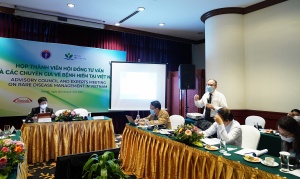
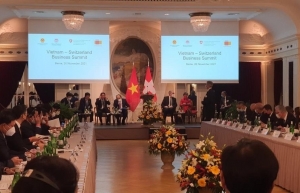
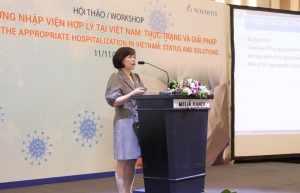
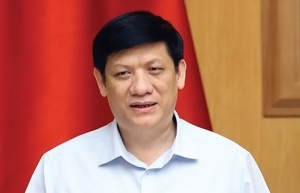
 Tag:
Tag:























 Mobile Version
Mobile Version